|
8/16/2018 When the Church Gets It RightBy Colleen Carmichael (a pseudonym), See the Triumph Guest Blogger
I sat in the parking lot for 30 minutes, and had my first panic attack, before getting up enough courage to get out of my car door and walk through the doors of a new church. I was three weeks separated from my abusive husband and could hardly speak a coherent sentence. I had been told not to return while separated, to my previous church and that the only source of reconciliation was to return and submit to my abusive husband. That wasn’t going to happen. However, I also knew that I, personally, needed thefellowship of a church, the body of Christ to get through this devastation in my life. A thousand thoughts rushed through my mind as I opened and walked through the door of the church. Would they accept me? What will they say when they find out I’m separated from my husband? Will they understand that his abuse is killing me literally, figuratively, mentally and emotionally? Will they care? Is there a bright flashing sign above my head that reads: “Unwelcome. Failure. Worthless.”? It sure felt like it. When I sat down in the back of the church on a Wednesday night, I had no idea the love, acceptance and support I would receive from this group of believers. They were kind. They cared. They listened and encouraged me to follow God. They prayed with me. They prayed for me. The first time I met the Pastor, I blurted out; “I’m separated from my husband due to infidelity and abuse. I don’t want my marriage to end in divorce, but I can’t guarantee that it won’t. Is that going to be a problem? Should I leave this church?” I’ll never forget the gentleness and kindness in my Pastor’s eyes when he replied without missing a beat: “Absolutely not! We are a church that worships and celebrates a God that can take the ugliest and most difficult parts of our lives and redeem them as we continue to follow Him. You are loved here and we will walk this road with you, if that’s what you would like.” I knew in an instant that I was home. My heart began to relax. I silently thanked God for this body of believers who were healthy enough to see the truth of the situation and know that God loves me. My heart began to heal a little bit that night. In the four years following, I have continued to grow and heal in this church. I have been wrapped up in the love God has for me and have been ministered to and encouraged by the wonderful people in that body of Christ. Each week the pastor speaks truth and I know that I don’t have to worry about being manipulated by half truths. One Sunday, I almost fell out of the pew when the pastor was preaching on marriage and he said: “Men it is NOT okay to abuse your wives!” I mean, we all knew that it was wrong…. but I’m not sure I’d ever heard it that clearly from any pulpit! That was the first time I’ve heard my pastor say that, but it isn’t the last! As I’ve healed and made healthy decisions about my future, the pastor has stayed engaged in my life. When he asks how I’m doing, I know he genuinely cares. For the past two years, I have received a scholarship to complete my Masters in Education. I needed someone to be a sponsor for me with the scholarship team…know who stepped up and has served in this position, sending in quarterly reports on my progress? That’s right, my pastor. Know who answers tough questions that roll around in my heart and need Biblical perspective? My pastor. The women in the church include me in their activities, groups and being a part of their families. I attend a Life Group of married couples, who allow me to “do life” with them. We celebrate and encourage each other. I get to see healthy marriages and they get to see a woman walking with her God. The incredible thing is that this is not the only church that has supported me in this process. My parent’s pastor has also stood with me, guided me and helped me through some very difficult, heart-wrenching decisions. Never did either of these pastors, from a conservative denomination, shame me or label me with guilt or shame. They both understood, that abuse was not God’s plan for anyone’s life and blaming the victim for the abuser’s actions would only destroy the victim. Instead, they built me up, in their own ways and through their own congregations to understand that I was truly loved by God and my life continued to have a purpose. They even helped me forgive my previous church who had hurt me so deeply. Today, I am grateful that a panic attack did not stop me from walking through the doors of my now church home. I am grateful for men of God who lead congregations that are committed to following Jesus and loving the hurting, not out of some societal fad but out of a deep love for the grace and mercy that they have received through Jesus. For the past couple of years, I have decided to move forward by clinging to what is good and letting go of what was bad. How can I hold onto anger and bitterness towards a church that acted out of ignorance when I have received such unconditional love, grace and acceptance from the churches God placed in my life? These churches have allowed me to grow, flourish and heal in my journey of recovery and that far outweighs the hurt of the past. To these churches who got it right…who understand what it means to help those who are victims and survivors, I am forever grateful for your generous love, leadership and encouragement in my life! You truly embody the love of Christ! Dear Church,
If I could speak clearly, eloquently and informatively on any topic I would want people to know that those who leave an abusive situation are survivors. Many people are judged, held prisoner to lofty ideals, religious rules and societal suppositions. The reality is that a victim of abuse does not think in those terms, they are too busy trying to survive. Every day is a carefully calculated, tenuously played game, like a game of chess with survival as the goal. I used to be one who thought that if people got divorced it was because they gave up, didn’t try hard enough and didn’t trust God enough to work in their marriage. I now know that is a naïve, one dimensional way to look at a situation as complex as an abusive marriage. Sure! God can do anything, work in any situation and cover any heart, no matter how far gone, with His grace, love and forgiveness. However, my simplistic view did not take into account that marriage is made up of TWO individuals. One person, no matter how committed, cannot keep a marriage together. They can spend their life, health and self-esteem as the currency to pay the deficit, trying to achieve the fantasy of a loving marriage. However, it will not be a marriage, not the way God designed it to be. What I would like to tell those who are tempted to judge from a distance, offer trite colloquialisms on restoration; who have never been in an abusive marriage or a marriage plagued by addictions is this: You cannot possibly know the horror that a person in this situation has lived in. Words fail to properly articulate the pain, confusion and total emptiness that this type of situation creates within a person. Judging a person for not “trying hard enough” or “not sticking it out long enough” puts heaping weight on their already heavy laden shoulders. An abusive marriage is the twisted form of a holy institute. Before you judge a person for leaving an abusive marriage, know that they have probably judged themselves far more than you can imagine. Finding the strength to reach out and get help took everything they had. They are weak, vulnerable and weary. Instead of pointing fingers and throwing verbal stones; I submit it’s better to reach out in love, seek to understand and lend a listening ear. We are champions for the institute of marriage and defenders of the weak. We love the unlovely. We call sin, sin. We know that God’s grace in each of our lives is the only reason we are who we are today. Instead of tearing the hurting among us down; let’s build each other up in love and spur each other onto doing good works in Christ Jesus. After all, we are the church, the body of Christ. From My Heart to Yours, Colleen Carmichael A Survivor By Michelle Vann Horton, See the Triumph Guest Blogger
Places of worship are often viewed as safe havens, a refuge for those in need. This perception has been no different for many immigrant victims who suffer from intimate partner violence. Many times, immigrants reach out to their religious leaders first before seeking professional sources of support. This sounds like a good idea, since religious institutions play a vital role in helping immigrants maintain their cultural identity and stay connected to others. Can we assume that religious leaders who shares a similar cultural background would be empathetic to immigrant victims of intimate partner violence? Unfortunately, in many cases, this is not what happens. In reality, many religious leaders react negatively or are unsupportive to victims of abuse. There are many reasons this may happen. First, many religions promote a harmful patriarchal point of view, which promotes male domination over women. From this lens, gender norms are established where sexual inequality is accepted and upheld in families throughout generations. Second, group-oriented cultural ideologies often prioritize the advancement of the community, family unit, or marriage over the wellbeing of the self. In addition, cultural definition and perceptions of intimate partner violence can vary greatly, and in many immigrant communities, these issues are not even acknowledged. Together, these cultural views can contribute to the negative reactions religious leaders may project as they silence victims or blame the victims’ behavior as cause for the violence (i.e., victim-blaming). Leaders may relay the message that it is the victims’ responsibility to stop the violence and imply that victims’ abuse results from their failing in their relationship with God. It is important for immigrant victims of family violence to surround themselves with multiple sources of support, especially people and organizations that have expertise with helping people impacted by violence and abuse. I know this may be easier said than done, especially with the overwhelming barriers immigrant populations face daily, like language barriers, discrimination, adjusting to mainstream culture, and lacking knowledge about U.S. laws and available support systems. Due to these barriers, it is vital that community agencies have the training and the staff needed to meet the culture-specific needs of the growing immigrant population in the U.S. Moreover, it is imperative that domestic violence agencies also connect with religious institutions and leaders that serve immigrant communities in order to become more proactive in removing the stigma associated with family violence, especially within places of worship. As agencies partner with religious institutions, religious leaders can increase their competence in supporting victims and survivors, as well as create community norms that promote safe relationships and families. In addition, prevention and educational programs can be implemented that honor and respect cultural norms while reframing the ideals of what a healthy marriage and family looks like. Ultimately, religious leaders have the power to confront controversial issues like family violence in their preaching and in their teachings. The ability to take a stand against family violence while at the pulpit sends a direct message to congregants that promotes survivors’ safety and holds abusers accountable. By Emily Esworthy, See the Triumph Guest Blogger I have been working with the WeWillSpeakOut.US coalition for over two years, and our underlying mission is to empower churches and other faith communities to “speak out” against sexual and domestic violence and amplify the voices that are already out there. The Problem of Silence Anecdotally, we know the Church in general has not been the most inspiring when it comes to the prevention of and response to sexual and domestic violence. (How many messages have you heard about it in church?) Hoping for concrete data, this June we partnered with Sojourners to commission a LifeWay Research survey of 1,000 US Protestant pastors to gauge their experiences and responses to sexual and domestic violence. The result was a report titled, “Broken Silence: A Call for Churches to Speak Out.” One of the key findings was that almost two-thirds of pastors (65%) speak once a year or less about this issue, with 10% never addressing it at all. This silence is troublesome and shows that most of our churches really are turning a blind eye to a painful problem that as many as one in three women (and many men) will experience. Enter Speak Out Sunday To encourage pastors and other faith leaders to speak out, WeWillSpeakOut.US created our annual “Speak Out Sunday,” which falls on Sunday, November 23, 2014 this year. (For those who don’t worship on Sundays, we encourage you to host a Speak Out Sabbath or Service on a nearby date that suits you.) Why this date? The United Nations has designated November 25 as the “International Day for the Elimination of Violence Against Women.” This day kicks off the international 16 Days of Activism Against Gender Violence, observed from November 25 through December 10. Each year we choose the Sunday that fits best within that time-frame to serve as the faith community’s platform for uniting with these global efforts. But here’s the rub: some pastors aren’t ready to speak out. I have talked with many, many survivors who have told me their pastor recommended they pray harder or submit more readily to their abusive spouse. Others have said their pastor accused them of desiring their rape or dressing in such a way as to “ask for it.” Furthermore, the Broken Silence report showed that 62% of pastors provided couples or marriage counseling in response to domestic and/or sexual violence. This is a potentially very harmful response, because it puts the victim in further danger. There is much to be done to adequately prepare pastors to address sexual and domestic violence. Through WeWillSpeakOut.US we are working to connect these pastors to the theological and practical resources that can be of help to them, and our vision is that churches participating in Speak Out Sunday will do so with ample prayer and preparation behind it so as not to risk revictimizing someone. Supporting your Speak Out Sunday Are you ready to speak out? Great! We’re here to help. Our suit of free tools and resources for pastors to use when gearing up for Speak Out Sunday is growing all the time. We have a sermon guide, a recorded webinar, a flyer of hotline numbers to post in your bathrooms, and more. For the full list, click here. As you map our your Speak Out Sunday, here are some critical things to keep in mind: · If you speak out, be prepared to have to take action. Statistically, there are people in your pews who have been victims and/or perpetrators of violence, and your sermon is likely elicit a response. We strongly recommend having a licensed counselor present at your service and a private room where they can talk quietly with anyone who may need support. · Have a referral process in place. If someone discloses to you that they have been abused, you’ll want to have the local crisis centers on speed dial. Find your local centers and shelters here or by using a simple Google search, and then contact them to introduce yourself. They may even be able to provide a counselor to attend your Speak Out Sunday service. We hope you’ll prayerfully consider hosting your own Speak Out Sunday this year, or at least taking the next steps to prepare yourself and your church to prevent and respond to violence. Your first next step is signing our Pledge Against Violence, which will put you on our email list and remind you of your commitment to speak out! 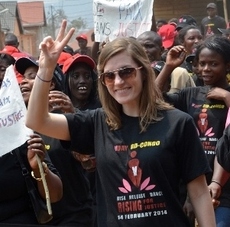 Emily Esworthy is a Marketing and Communications Officer for IMA World Health and the Secretariat for WeWillSpeakOut U.S. – a faith-based coalition and movement of diverse faith groups from across the US that joins together with other leaders, organizations and congregations in action and advocacy to end the silence around sexual and gender based violence. By The Spiritual Alliance to Stop Intimate Violence Broken. Silence. Broken. Silence. These words mean a great deal to survivors of intimate abuse. SAIV and our partners would like to see domestic violence included as a component of all theological education. A new poll of 1,000 pastors shows clearly that pastors often fail to address domestic and sexual violence appropriately. They consider themselves ill-equipped to respond to incidents of violence. The following is taken from the Huffington Post article of June 2014 on this subject, entitled, “Pastors Rarely Preach About Domestic Violence Even Though It Affects Countless Americans.” Co-sponsored by the Christian nonprofits, Sojourners and IMA World Health, the survey also found that pastors were more likely to believe domestic violence was an issue in their community (72%) than an issue in their church (25%). “I think many pastors still don’t think it exists in their congregation,” Yvonne DeVaughn, director of Advocacy for Victims of Abuse (AVA), told LifeWay.
Violence against women was named as a “significant public health issue” by the World Health Organization in 2013, which reported that 35 percent of women around the globe have experienced sexual or physical abuse by a partner or non-partner. And according to the U.S. Centers for Disease Control, the chance of a man experiencing abuse at the hand of an intimate partner was one in four. What makes this poll unique is that there is not much data on how pastors view and address the issues of domestic and sexual violence. According to Rick Santos, President and CEO of IMA World Health, “there is little information out there about what is actually happening in the U.S. faith community on this issue.” Despite the poll’s major finding — that pastors underestimate the pervasiveness of sexual and domestic violence in their congregations — the report offers some hope. Of the pastors polled, 81 percent reported that they would “take appropriate action to reduce sexual and domestic violence if they had the training and resources to do so.” Sojourners recently published I Believe You: Sexual Violence and the Church , a study edited by its president and founder, Jim Wallis, and Catherine Woodiwiss, Associate Web Editor. The study features three essays about women, sexual violence, and their experiences in dealing with their abuse in their churches. It is a step forward in the effort to bring light to an issue that is often cloaked in darkness and to give voices to victims who often feel silenced by the church’s failure to understand the prevalence of sexual and domestic violence. “This is a conversation the church needs to be having but isn’t,” Wallis said. “We cannot remain silent when our sisters and brothers live under the threat of violence in their homes and communities.” This post was adapted, with permission, from SAIV's original blog post on their web-site, which can be found here: http://saiv.org/broken-silence-a-call-for-churches-to-speak-out/. Learn more about SAIV here: http://saiv.org/about/. By MargiAnne Isaia, See the Triumph Guest Blogger “Sacred Silence” in the Adventist Romanian Family is the secret which must be kept inside the holy circle surrounding husband and wife. I recently completed a qualitative research study, in which I was interested in exploring the experiences of Romanian Adventist abused spouses while they kept silence about been abused. A group of five abused spouses who live in the US and Romania, including four women and one man, answered open-ended questions about their experiences while been abused, as well as its impact on their beliefs, feelings, attitudes and their children’s lives. I also compared the study’s findings with information that was available in the reviewed literature. It’s important to note that the findings of my study can’t be generalized to all Romanian Adventist families—rather, they offer a glimpse into the ways that some members of this cultural group experience intimate partner violence. The Romanian Adventist abused spouses I studied did not immediately seek help for their abusive relationships. The victims kept silent for a while, trying hard, based on their religious beliefs in changing their abusive spouses. It took time and deterioration of the participants’ health or their home situation got unmanageable in order for them to speak up. The participants lived with depression that was not present in their lives before getting married. The experience of participants with a history of psychiatric disorder supports the fact that domestic violence is under-detected in mental health services. Their children’s health was negatively impacted. The main coping mechanism they used was holding to their spirituality and a sense of hope. Denial of the abusive situation prevented one of the participants for looking for specialized help. At the same time, their religious beliefs influenced their views of getting help, or it led them to refuse to express shame or fear or ask for help somewhere else outside their pastors. Regretfully, participants reported that the Romanian Adventist pastors they encountered provided victims with an unsatisfactory spiritual counseling. Moreover, while providing counseling, the pastors often made the abused spouses feel guilty. The benefits of specialized help were emphasized by the participants. However, participants said that their pastors didn’t make referrals to other resources for help. The fact that study participants belonged to both genders could challenge the Christian fundamentalist view of women’s position in the family as submissive to her husband, and men’s position of authority, as the head of the woman. When applied in the context of family violence, it can become a toxic theology. Secrets about spousal abuse create distress for survivors’ physical, emotional, intellectual, social, occupational and spiritual health. Based on my research, I believe that people who promote “Sacred Silence” in abusive situations do not take into account the psycho-social health of victims. It is very difficult to recognize the fact that the abuse does happen in religious communities. Religious people, religious authorities included, often do not have the courage and maturity to face the reality and work toward stopping the abuse. My research suggests that some religious authorities deny or ignore or enforce the abuse. It takes maturity and wisdom from religious leaders to team with mental health professionals and provide comprehensive support for survivors of abuse. Likewise, it takes courage from religious leaders to recognize their accountability in perpetuating the abuse in the church. Overall, it takes compassion and authentic concern for people in order to work toward stopping the abuse. References
 Dr. MargiAnne Isaia, MD, MPH, is a Counseling MS Student at Loma Linda University/School of Behavioral Health. She is also the Program Developer and Initiator of Document X, a documentary film for raising awareness with regard to Child Sexual Abuse, and the film is available in Romanian and English, and very soon in Russian and Spanish. You can contact MargiAnne at www.enthusiasticlife.net and [email protected]. 3/30/2014 Reflections on Faith and NonviolenceBy Christine Murray, See the Triumph Co-Founder
I’m taking a different approach to today’s blog post, in that I want to share some personal reflections on how my own faith has shaped my views about abuse and nonviolence. As a lifelong Christian (I’ve attended mostly Presbyterian churches throughout my life, and now attend a non-denominational church), it really pains me when I see or hear about situations where religion is used to justify abuse, and especially when it raises the risk for further abuse to victims. For some examples of this from our research, please see my post on March 11 on “The Stigma of Intimate Partner Violence in Churches: Part Three - How Religion Can Perpetuate Abuse.” Loving-Kindness My own take on religion, including the Christian faith (which I’m most familiar with), is that loving-kindness, above all, is a reflection of God’s love for all us. I absolutely cannot see how any form of abuse--be it physical, sexual, or emotional--can be justified within relationships. The Biblical passage from 1 Corinthians 13: 4-13, which is often read at weddings, provides a glimpse into what I believe is God’s vision for our relationships: 4 Love is patient, love is kind. It does not envy, it does not boast, it is not proud. 5 It does not dishonor others, it is not self-seeking, it is not easily angered, it keeps no record of wrongs. 6 Love does not delight in evil but rejoices with the truth. 7 It always protects, always trusts, always hopes, always perseveres. 8 Love never fails. But where there are prophecies, they will cease; where there are tongues, they will be stilled; where there is knowledge, it will pass away. 9 For we know in part and we prophesy in part, 10 but when completeness comes, what is in part disappears. 11 When I was a child, I talked like a child, I thought like a child, I reasoned like a child. When I became a man, I put the ways of childhood behind me. 12 For now we see only a reflection as in a mirror; then we shall see face to face. Now I know in part; then I shall know fully, even as I am fully known. 13 And now these three remain: faith, hope and love. But the greatest of these is love. (NIV) My takeaway from this passage is that love is embodied in relationships as patience, kindness, honor, peace, forgiveness, and trust. Of course, as humans, we can’t perfectly achieve these virtues every moment. However, abuse--characterized by dominance, power, control, rage, and torment--simply is not compatible with this view of loving relationships that we find in 1 Corinthians. Submission One of the Bible verses that is often used to justify abuse is from Ephesians 5:22-24: 22 Wives, submit yourselves to your own husbands as you do to the Lord. 23 For the husband is the head of the wife as Christ is the head of the church, his body, of which he is the Savior. 24 Now as the church submits to Christ, so also wives should submit to their husbands in everything. (NIV) Taken out of context, this verse suggests that women are to submit to their husbands, regardless of the circumstances (i.e., “wives should submit to their husbands in everything”). Too often, I believe that this has been taken to mean that wives should submit to their husbands even within an abusive context. And yet, when we read on to the next verses in Ephesians 5:25-33, we see that submission is not a one-way street. 25 Husbands, love your wives, just as Christ loved the church and gave himself up for her 26 to make her holy, cleansing her by the washing with water through the word, 27 and to present her to himself as a radiant church, without stain or wrinkle or any other blemish, but holy and blameless. 28 In this same way, husbands ought to love their wives as their own bodies. He who loves his wife loves himself. 29 After all, no one ever hated their own body, but they feed and care for their body, just as Christ does the church— 30 for we are members of his body. 31 “For this reason a man will leave his father and mother and be united to his wife, and the two will become one flesh.”32 This is a profound mystery—but I am talking about Christ and the church. 33 However, each one of you also must love his wife as he loves himself, and the wife must respect her husband. The responsibility for husbands is to treat their wives in loving ways, even “to love their wives as their own bodies.” This means they “feed and care for” their wives in a loving way. Again, how can this love and care be compatible with abuse? When I look at the full picture of these verses in Ephesians 5, I see a broader vision for how people should treat each other in any type of relationship, not just husband-wife relationships. My interpretation is that in relationships, all people should submit to one another by loving them, caring for them, actively working to meet their needs, and following the “golden rule” to treat them as they themselves would like to be treated. Why Should People of Faith Care about Abuse? Proverbs 31:8 says, “Speak up for those who cannot speak for themselves.” To me, this verse is a call to action to help others facing challenges that limit their power and ability to advocate for themselves, both within one’s own faith community and in the broader community. People who are being abused often cannot speak for themselves. Their partners may have threatened to harm them if they tell anyone about their abuse. They may not feel they have options to leave an abusive relationship, especially if they are financially dependent on their abusers. In light of the abuse they experienced, their self-esteem may be hurting so much that they don’t believe that they deserve better. They may even believe they deserve to be abused after hearing that it’s their fault from their abuser and others. They also may be facing significant negative consequences from their abuse--such as physical injuries or mental health symptoms--that make it difficult for them to leave. These challenges can continue even after a person has left an abusive relationship. All this month, we’ve focused on how faith communities can take action to challenge the stigma surrounding abuse and provide support to survivors. I believe that these actions are a significant way that churches can be a driving force in the movement to end intimate partner violence. Although our month-long focus on this topic is coming to an end, we hope you’ll continue to share ideas, resources, and creative ways that faith communities can speak up for survivors and play a key role in preventing further abuse! 3/27/2014 Secrets of A Pastor's Wife RevealedBy Maxine Browne, See the Triumph Guest Blogger In the ministry, reputation is everything. Pastors not only personify leadership, but holiness. They are expected to be above reproach. If their personal lives are dysfunctional, they are perceived to be unworthy of their position. As a pastor’s wife, you smile when you feel sad and are silent when you want to scream. But this is true of the wife of any prominent man. Part of your role is to guard your family’s public image. But what if your husband is abusive? Who do you talk to? If word leaks out, it could affect the congregation of your church. The parishioners may lose respect for their leader. So, a pastor’s wife may think long and hard about seeking help. How do I know? I was a pastor’s wife. Leaving my abusive marriage was the most difficult decision I ever made. I knew my choice would hurt other people, and that was what held me captive for so long. I felt so trapped in my situation I had planned my suicide. I left instead. So, consider this when working with families in leadership in your congregations. There may be things hidden from view, secrets kept for the sake of public opinion endangering the family’s welfare. How many people in your church are hiding behind a mask because they don’t think they can talk about what is really happening in their lives? There needs to be a place where church leaders can expose their humanity and find support when they are experiencing tough times. After all, they’re only human, just like everyone else. Note: This blog is re-posted from http://frombrokentobutterfly.blogspot.com/2014/01/secrets-of-pastors-wife-revealed.html  Bio for Maxine Brown: Maxine Browne is a keynote speaker and workshop facilitator on the topics of domestic violence and rebuilding your life after divorce. Her inspirational stories illustrate how to co-parent with a difficult ex and how to create healthier relationships. Maxine is one of the 27 amazing co-authors of the International Best Seller, The Missing Piece compiled by Kate Gardner, as well as one of the co-authors for The Missing Piece in Business. She is also the author of Years of Tears, the story of her 10 year marriage to a controlling tyrant that changed her life forever. Contact Maxine to speak at your next event at [email protected]. Visit her website at www.maxinebrowne.com. By Maxine Browne, See the Triumph Guest Blogger Sometimes we forget that the church is a reflection of our society as a whole. Whatever ills are present outside of the church are also present within its walls. And that goes for domestic violence. It is estimated that 1 in 4 women will experience domestic violence in their lifetime. Since intimate partner violence is a largely underreported crime, it is likely more prevalent that we care to imagine. If you know the signs to watch for, you can be more effective spotting domestic violence within your congregation. 1. Stuck together with Velcro In a controlling relationship, the couple will almost always be seen together. They’ll rarely have separate conversations or wander around the church unaccompanied by their partner. So, have you noticed a couple who is almost never seen independent of their spouse? 2. One spouse does all the talking In a controlling relationship, one partner dominates every conversation, while their spouse may gradually lose themselves. They become a silent observer, rarely voicing an opinion of any kind. Their mate may even mildly put down their partner to keep them quiet. “She doesn’t really understand things like that.” One spouse may even answer for their partner, cutting them off before they have a chance to respond to questions asked. So, have you noticed a couple where only one person speaks? 3. One spouse must ask permission There is nothing wrong with having to check in with our spouse to be sure the family has no plans this weekend before committing to something new. However, in a controlling relationship, there is a parent/child dynamic in play, where one must ask permission to participate in things. So, have you noticed an adult having to ask their partner’s permission to attend an event or participate on a committee? 4. One spouse serves at every event attended by their partner A controlling spouse may insist on ushering at the Women’s Retreat or cooking for the Ladies Breakfast. Their helpfulness is actually a way to discretely keep their spouse under surveillance. At the very least, they may insist on driving their spouse to the event and picking them up afterwards. They may even arrive early and hang around in the back of the room, justifying their presence by saying they were in town anyway and just killing time. So, have you noticed overly eager or inappropriate offers to help? Have you noticed a spouse hanging around to drive their partner home? It may not be as innocent as it looks. 5. The dead look in his/her eyes does not match the plastered smile on their face Living in a controlling or abusive relationship can lead to depression. The victim may feel cornered, trapped and under constant pressure. The victim may lose their ability to speak up for themselves. The victim may struggle to keep their faith. So, have you noticed anyone who seems withdrawn or down in the dumps? Has someone come to you about doubts about God’s faithfulness and love? What you can do about it? 1. If someone in your congregation approaches you about their spouse, believe them. Many victims complain that their spiritual leader did not take their concerns seriously when they sought help. The leader could not accept that Brother So-And-So could be mean, or Deacon “Smith” would hurt anyone, much less his spouse and kids. After all, he or she has been a faithful member for so many years and contributes so much to the community. Remember, anyone can wear a mask in church and anyone can be the victim of abuse. 2. Never insist on couple’s counseling if one of them complains about control or abuse. In cases of domestic violence or a controlling spouse, couple’s counseling is a bad idea. If the victim reveals anything to the counselor in front of their abuser, they will pay dearly for it at home. It may increase the level of danger for them due to retaliatory tactics. It’s best to refer the victim to a domestic violence program. They know best how to handle things such as this. They also know what resources are available for the victim’s specific situation. 3. Hang up posters or put resource phone numbers in both of the restrooms. This may be the only time that the individual has without their spouse next to them. Victims can be male or female, so offer resources to both genders. Note: This blog is re-posted from http://frombrokentobutterfly.blogspot.com/2014/01/5-warning-signs-of-spousal-abuse-within.html  Bio for Maxine Brown: Maxine Browne is a keynote speaker and workshop facilitator on the topics of domestic violence and rebuilding your life after divorce. Her inspirational stories illustrate how to co-parent with a difficult ex and how to create healthier relationships. Maxine is one of the 27 amazing co-authors of the International Best Seller, The Missing Piece compiled by Kate Gardner, as well as one of the co-authors for The Missing Piece in Business. She is also the author of Years of Tears, the story of her 10 year marriage to a controlling tyrant that changed her life forever. Contact Maxine to speak at your next event at [email protected]. Visit her website at www.maxinebrowne.com. By Christine Murray, See the Triumph Co-Founder
This month, we’ve been focusing on ways that churches can help to challenge the stigma surrounding intimate partner violence, and especially the stigma the survivors may face from within their faith communities. One idea that we heard on how faith communities could do this is by providing a forum for survivors to share their stories. As we’ve discussed before, the choice for whether survivors want to tell their stories should always be completely up to them. Sharing one’s story can be very powerful, but it can also bring potential safety risks. Also, a survivor who shares his or her story may face harmful reactions from others, such as disbelief, blame, and a general lack of support or validation. If a survivor feels safe to share his or her story within a church setting--whether that is with a full congregation or with smaller groups within the church--this can provide a very powerful opportunity for both the survivor and the other members of the faith community. The survivor may feel empowered by the opportunity to inspire and educate others through their experiences. In turn, community members can learn from the survivor, thereby becoming more aware of the dynamics of intimate partner violence and the needs that other survivors may face. I think we can learn from the experiences of some of the survivors in our research on how best to set up these speaking opportunities in a way that is safe for the survivor and educational for the community. To that end, I offer the following three suggestions: 1. When possible, work in conjunction with local domestic violence agencies. One survivor said, “On three occasions in large faith-based group settings, I've shared my story as a survivor speaker for a community agency that advocates for DV victims and their families. The reaction of most have been compassionate and empathetic.” Having the involvement of local professionals is useful for at least two reasons. First, professionals can supplement the information provided by survivors by offering local resources and information about the common dynamics involved in domestic violence cases. Second, hearing a story of one person’s abuse can prompt others in a group to disclose their own abuse histories. A professional can therefore help to respond to these new disclosures and direct these people to appropriate community resources as needed. 2. Respond to the survivor’s story with empathy and support. Even survivors who are comfortable sharing their stories can be very sensitive to negative responses from others. For example, one survivor in our research said that, after she shared her story, people “responded in silence through actions, facial expressions as if to say ‘why is she sharing her dirty laundry?’ This collection of folks find ways to avoid eye contact when our paths have crossed again.” Such a response can add to the stigma surrounding abuse for the speaker. In addition to the speaker, this can be hurtful to other survivors in the audience. Although it’s not possible to control how every single person will respond to a survivor’s story in a public or group setting, church leaders can be vocal in expressing a validating and supportive response and thereby set the tone for the other community members’ responses. 3. Encourage church members to keep an open mind to hearing ideas and experiences that are different from their own. One of our research participants said, “You have an uphill battle to end stigmatization in fundamentalist faith communities because very often they are resistant to hearing anything that contradicts their paradigms.” Of course, every faith community will hold true to its religious beliefs and values, and that’s an important part of what unites that community. At the same time, sometimes difficult experiences, such as abuse, do not fit neatly into religious belief systems. Furthermore, as we explored in a previous post, sometimes religious values and beliefs are applied in ways that add to the stigma surrounding abuse and increase the safety risks for survivors. Therefore, an openness to hearing difficult stories and considering how religious beliefs intersect with those stories can help congregations begin to really challenge the stigma surrounding abuse. I’ve personally spoken with church groups about domestic violence, and most often I have found them to be very concerned about this issue and wanting to help support survivors however they can. I believe that creating safe spaces for survivors to share their stories is one important way that religious groups can support survivors and raise awareness about intimate partner violence among faith communities. Share your ideas with us, too! What do you think are the barriers to creating safe places for survivors to share their stories in faith communities? What ideas do you have for creating more of these opportunities in your own faith community? |
Archives
July 2024
CategoriesAll About Intimate Partner Violence About Intimate Partner Violence Advocacy Ambassadors Children Churches College Campuses Cultural Issues Domestic Violence Awareness Month Financial Recovery How To Help A Friend Human Rights Human-rights Immigrants International Media Overcoming Past Abuse Overcoming-past-abuse Parenting Prevention Resources For Survivors Safe Relationships Following Abuse Schools Selfcare Self-care Sexual Assault Sexuality Social Justice Social-justice Stigma Supporting Survivors Survivor Quotes Survivor-quotes Survivor Stories Teen Dating Violence Trafficking Transformative-approaches |
Search by typing & pressing enter



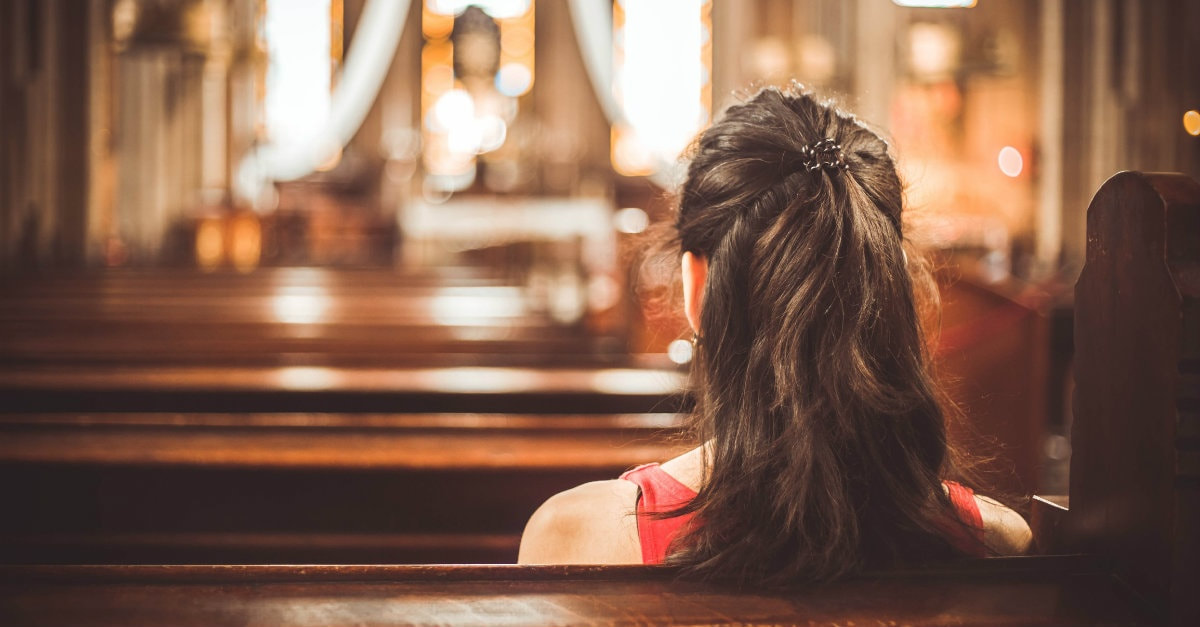
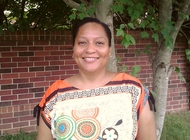


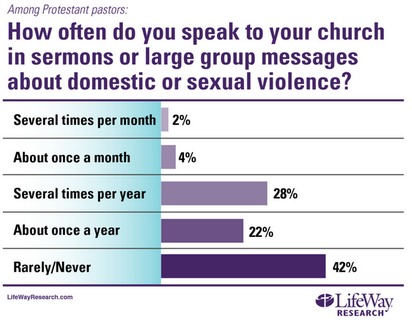
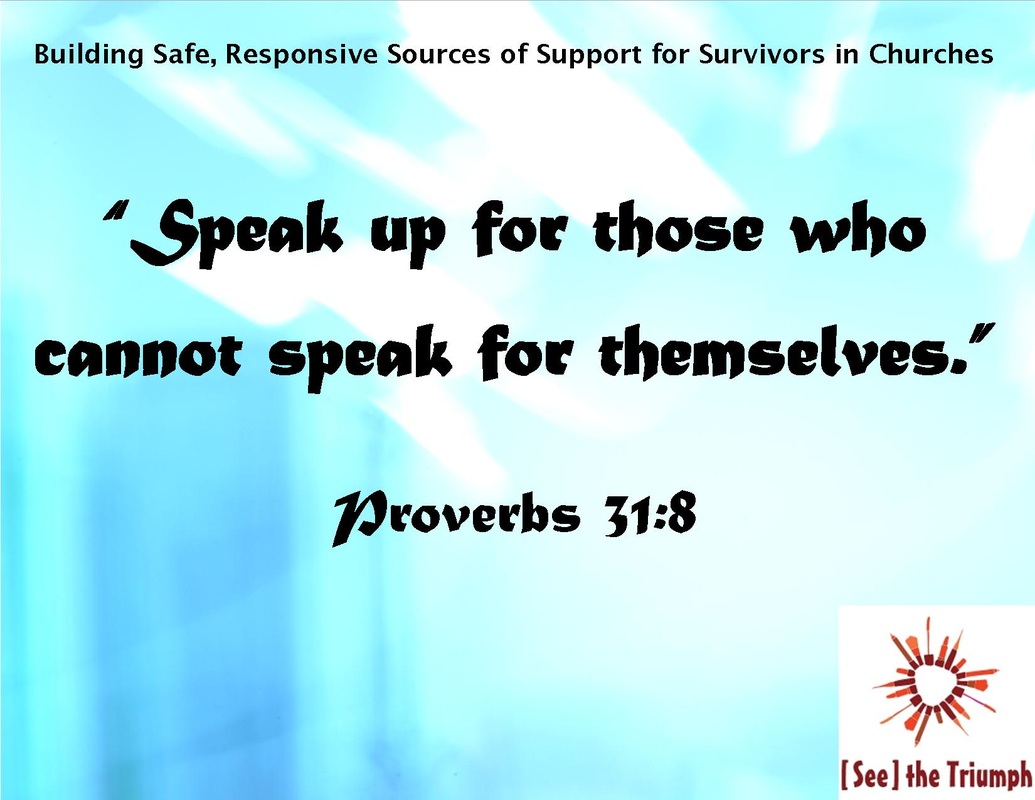
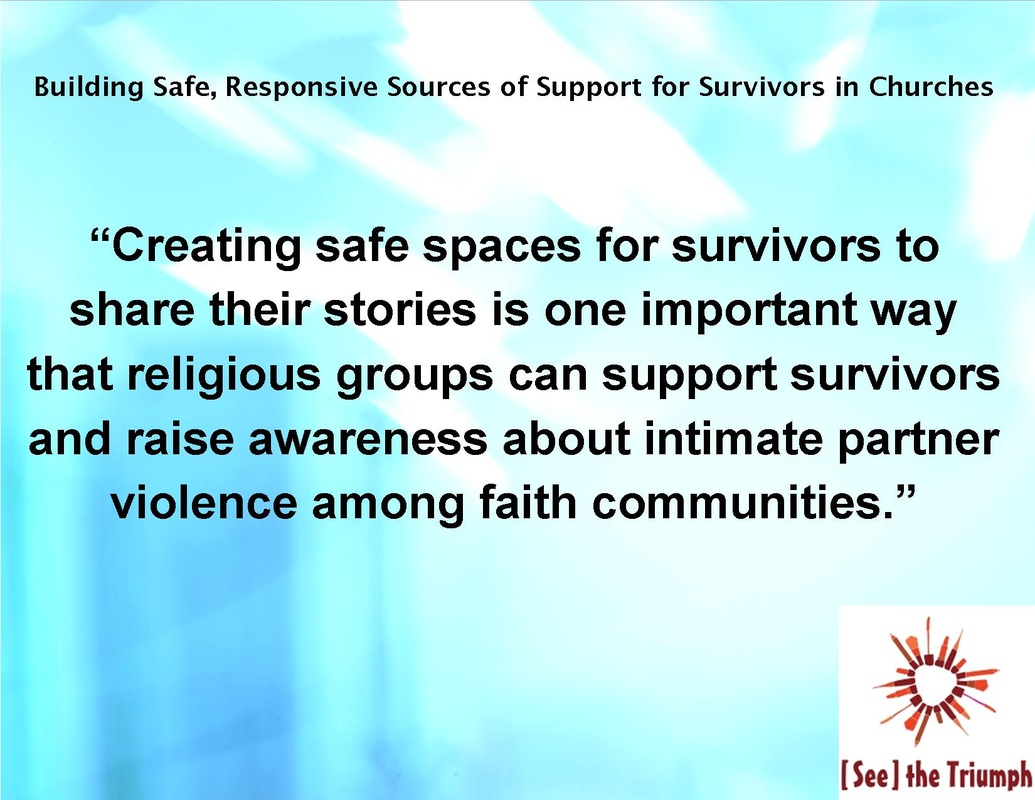
 RSS Feed
RSS Feed